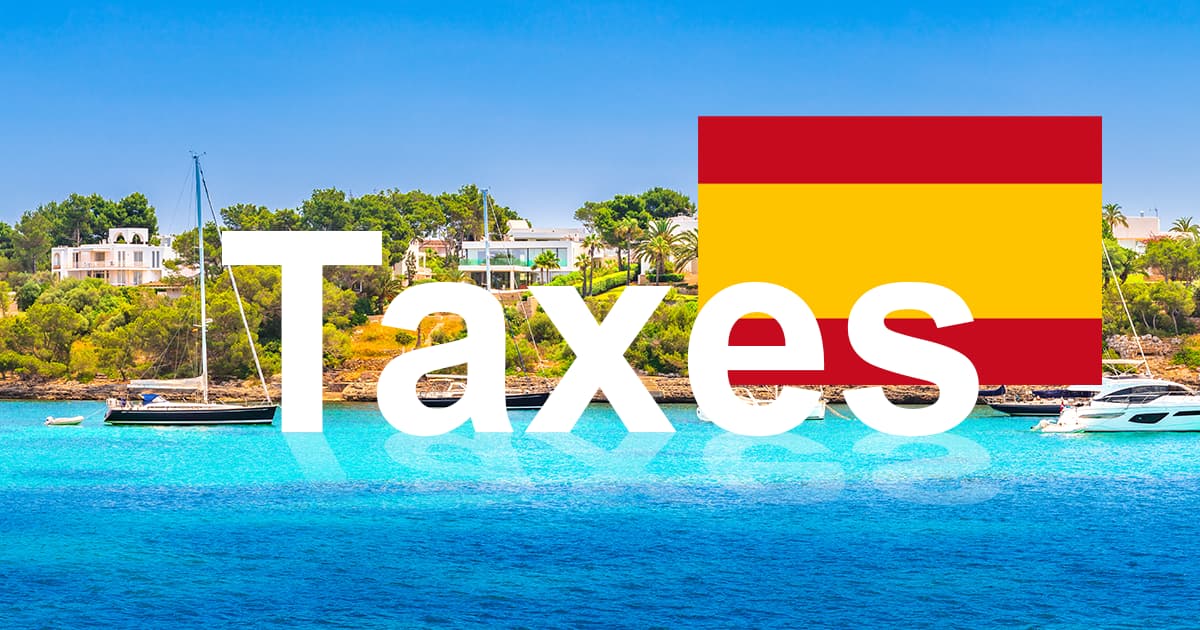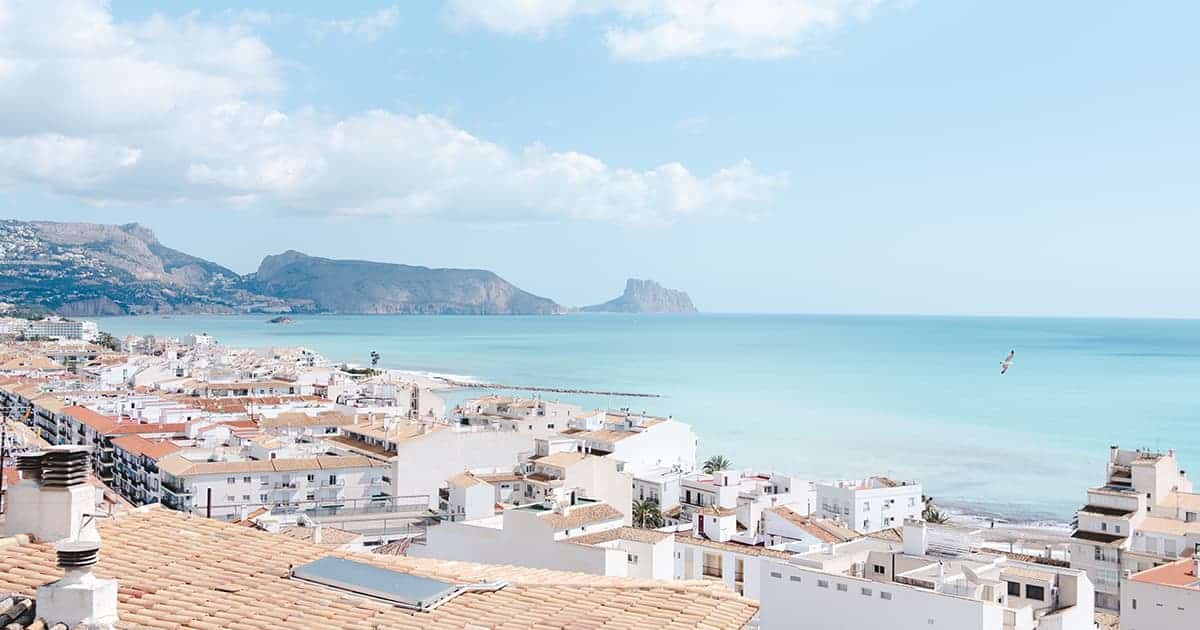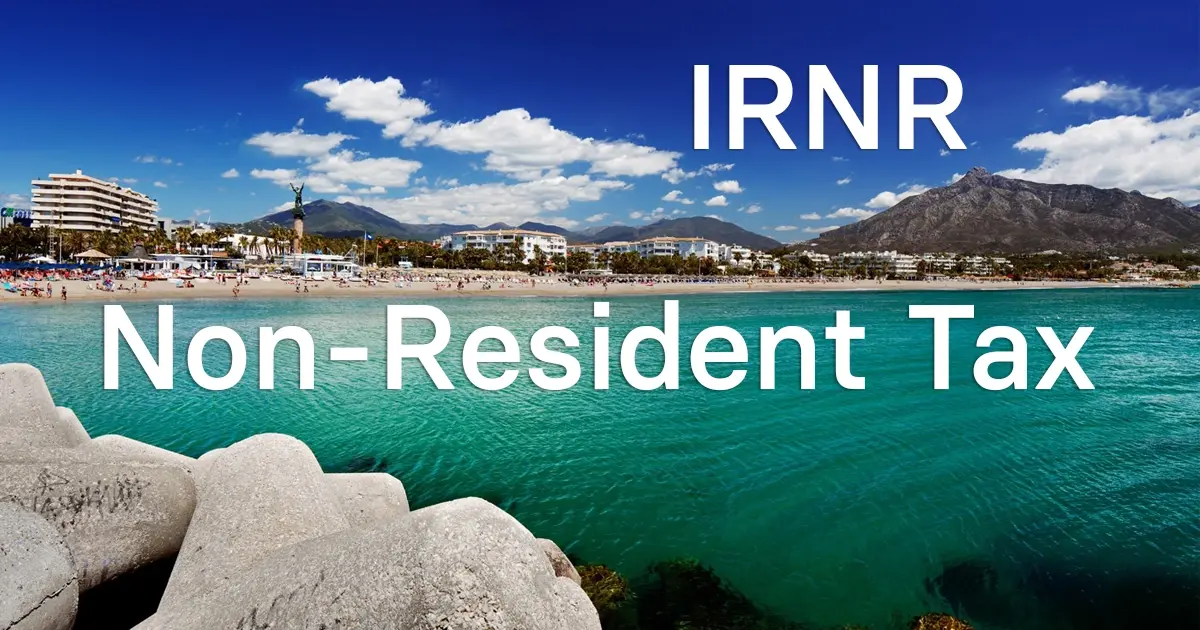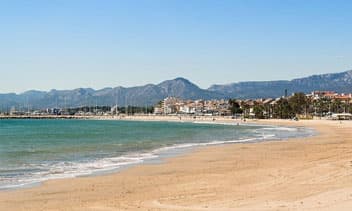
Taxes When Purchasing Real Estate in Spain
Last update: September 3, 2025
Reading time: 12.1 min
No Time to Read It All? Here’s the Quick Summary:
Many foreign buyers are surprised to learn that the purchase price is only part of the story when buying real estate in Spain. Depending on the region and type of property, additional taxes and fees can add 11% to 15% to your total cost. Resale homes come with ITP rates up to 10%, while new builds include VAT and Stamp Duty (AJD) that vary by location. Add to that notary fees, land registry costs, and legal representation, and the numbers can escalate quickly. Planning for these hidden costs is essential to avoid delays, penalties, or deal cancellations — especially if you’re buying from abroad.
What You Really Pay When Buying in Spain
Buying property in Spain is an exciting step — whether it’s a sunny vacation home or a long-term investment. But many foreign buyers underestimate the real cost of purchasing real estate in Spain. Beyond the advertised price, several upfront taxes and legal fees must be factored into your budget, and they can easily add 11% to 15% on top of the purchase price.
These additional costs vary depending on the type of property (new or resale), the region where it’s located, and the services you use during the transaction. Failing to plan for them can lead to financial surprises, deal delays, or even tax penalties.
This guide focuses on all the initial taxes and fees involved in buying property in Spain. You’ll learn exactly what to expect in terms of:
- Property transfer taxes (ITP) or VAT (IVA) depending on the property type
- Stamp duty (AJD)
- Notary, registry, and legal fees
- How these costs vary between regions

Resale vs New Property: How Costs Differ
When buying property in Spain, costs vary significantly depending on whether the home is a resale or a new-build. Understanding the differences helps you plan your budget accurately and avoid surprises.
Buying a Resale Property
If you’re purchasing a second-hand property (from a private individual), the Property Transfer Tax (ITP) is the most important cost. It ranges from 6% to 10% of the purchase price, depending on the region.
You’ll also need to pay:
- Notary fees: 0.5% to 1%
- Land registry fees: 0.4% to 0.7%
- Legal fees: 1% to 2% (optional, but highly recommended)
In typical transactions, the buyer pays all taxes and legal costs, while the seller covers capital gains tax and the plusvalía municipal.
Example:
If you buy a €250,000 resale flat in Valencia, where the ITP rate is 10%, here’s a rough cost breakdown:
| Item | Estimated Cost |
|---|---|
| ITP (10%) | €25,000 |
| Notary + Registry | €1,500 – €2,000 |
| Legal fees (1.5%) | €3,750 |
| Total extra cost | ~€30,000 |
Estimated Cost : €25,000
Estimated Cost : €1,500 – €2,000
Estimated Cost : €3,750
Estimated Cost : ~€30,000
Source : Agencia Tributaria
Buying a New-Build Property
For newly built properties sold directly by a developer, VAT (IVA) applies instead of ITP. This is a national tax, set at 10% of the purchase price. On top of that, you’ll pay Stamp Duty (AJD), which ranges from 0.5% to 1.5%, depending on the region.
Additional costs include:
- Notary and registry fees (0.9% to 1.7% total)
- Legal assistance (1% to 2%)
Canary Islands Exception: Instead of VAT, new properties are subject to IGIC (7%), plus 0.75% AJD.
Example:
For a €300,000 new-build flat in Malaga, with a 10% VAT and 1.2% AJD:
| Item | Estimated Cost |
|---|---|
| VAT (10%) | €30,000 |
| AJD (1.2%) | €3,600 |
| Notary + Registry | €2,000 – €2,500 |
| Legal fees (1.5%) | €4,500 |
| Total extra cost | ~€40,000 |
Estimated Cost : €30,000
Estimated Cost : €3,600
Estimated Cost : €2,000 – €2,500
Estimated Cost : €4,500
Estimated Cost : ~€40,000
Source : Agencia Tributaria
Summary Table: Total Estimated Purchase Costs
Here’s a side-by-side comparison of typical costs for a €250,000 resale and a €300,000 new-build property:
| Cost Category | Resale Property (€250K) | New-Build Property (€300K) |
|---|---|---|
| Main tax | ITP (10%): €25,000 | VAT (10%): €30,000 |
| Stamp duty (AJD) | – | AJD (1.2%): €3,600 |
| Notary & Registry | €1,500 – €2,000 | €2,000 – €2,500 |
| Legal fees | €3,750 | €4,500 |
| Total | ~€30,000 | ~€40,000 |
| % of price | ~12% | ~13% |
Resale Property : ITP (10%): €25,000
New-Build Property : VAT (10%): €30,000
Resale Property : –
New-Build Property : AJD (1.2%): €3,600
Resale Property : €1,500 – €2,000
New-Build Property : €2,000 – €2,500
Resale Property : €3,750
New-Build Property : €4,500
Resale Property : ~€30,000
New-Build Property : ~€40,000
Resale Property : ~12%
New-Build Property : ~13%
Source : Agencia Tributaria
Want to know your exact purchase tax and fee breakdown?

Understanding Each Tax and Fee
Spain’s property purchase process involves several distinct taxes and service fees. Here’s a breakdown of what each one is, how it’s calculated, and when it applies.
ITP – Property Transfer Tax (Resale Only)
The Impuesto sobre Transmisiones Patrimoniales (ITP) applies when purchasing a resale property from a private individual. It’s a regional tax, and the rate varies depending on the Autonomous Community.
| Region | ITP Rate |
|---|---|
| Andalusia | 7%–10% |
| Aragon | 8% |
| Asturias | 8% |
| Balearic Islands | 8%–11.5% |
| Canary Islands | 6.5% |
| Catalonia | 10% |
| Community of Madrid | 6% |
| Valencia Region | 10% |
| Basque Country | 4% |
ITP Rate : 7%–10%
ITP Rate : 8%
ITP Rate : 8%
ITP Rate : 8%–11.5%
ITP Rate : 6.5%
ITP Rate : 10%
ITP Rate : 6%
ITP Rate : 10%
ITP Rate : 4%
Source : Agencia Tributaria
Some regions apply progressive rates based on property value.
How It’s Calculated
The tax is applied to the declared purchase price or the official property value (if higher), as assessed by the regional tax authority.
Payment Timeline
ITP must be paid within 30 days of signing the notary deed (escritura pública). Payment is made directly to the regional tax agency, often via their online portal or with a gestor’s help.
VAT (IVA) – Value-Added Tax (New Property Only)
When buying new property from a developer, VAT (IVA) replaces ITP. This is a national tax, charged at:
- 10% for residential properties
- Not applicable for resale properties
Canary Islands Exception
In the Canary Islands, IGIC (Impuesto General Indirecto Canario) applies instead of VAT:
- IGIC rate: 7%
When Does VAT Apply?
VAT is charged when:
- The seller is a developer or construction company
- The property is being sold for the first time
- Parking spaces, storage rooms, and land plots may have separate VAT rates
AJD – Stamp Duty (New Property Only)
The Actos Jurídicos Documentados (AJD), or Stamp Duty, applies in addition to VAT when buying a new home. It is levied on the notarized deed.
| Region | AJD Rate |
|---|---|
| Andalusia | 1.2% |
| Aragon | 1.5% |
| Asturias | 1.2% |
| Canary Islands | 0.75% |
| Catalonia | 1.5% |
| Madrid | 0.75% |
| Valencia Region | 1.5% |
| Basque Country | 0% |
What Does It Cover?
AJD applies to the official notarial documents (escritura pública) that formalize the transaction. The buyer is responsible for this tax, which is based on the declared property price.
Notary Fees
Notary fees in Spain are government-regulated but slightly flexible depending on the property price and complexity of the deed.
- Typical cost: 0.5% to 1% of the purchase price
- Covers preparation and witnessing of the deed of sale
Notaries don’t check legal status or property debts — their role is to formalize the transaction, not to protect the buyer.
Land Registry Fees
After signing the deed, the property must be registered in the Land Registry (Registro de la Propiedad).
- Typical cost: 0.4% to 0.7% of the purchase price
- Confirms legal ownership and protects against third-party claims
Land registration is mandatory and done via a registrar, often coordinated by your lawyer or gestor.
Legal Fees
Hiring a real estate lawyer is strongly advised, especially for foreign buyers. Your lawyer will:
- Review and draft contracts
- Verify the property is free of debt or legal issues
- Represent you with the notary and seller
- Handle tax payments and registration
Typical cost: 1% to 2% of the purchase price
A lawyer ensures your transaction is safe and compliant — a must-have in Spain’s buyer-beware system.
Real Estate Agency Fees
Agency fees are often paid by the seller, but this depends on local custom.
- Buyer pays: more common in Barcelona, Valencia, and some coastal areas
- Seller pays: common in Madrid and central Spain
Fee range: 3% to 6% of the sale price — often non-negotiable with exclusive listings
Always ask upfront who is responsible for paying agency commissions and whether VAT applies (often 21%).

How Regional Tax Variations Impact Your Budget
Spain’s property taxes are not uniform. Because many real estate-related taxes are regulated by the Autonomous Communities, where you buy can significantly affect your total purchase costs.
Why Tax Rates Change from One Region to Another
While VAT (IVA) is a national tax, most of the other major property-related taxes — like ITP, AJD, and even some minor fees — are set by the regional governments. These local authorities have autonomy to adjust rates, apply progressive scales, or even offer exemptions or rebates for certain types of buyers (e.g. large families or young first-time buyers).
As a result, two similar properties in different regions can generate thousands of euros in tax difference — even with the same purchase price.
Tax Rate Comparison: Madrid vs Catalonia vs Valencia (2025)
Let’s compare the most relevant taxes in three major Spanish regions:
| Region | ITP (Resale) | AJD (New Build) | Notes |
|---|---|---|---|
| Madrid | 6% | 0.75% | Lower flat rates to attract investors |
| Catalonia | 10% | 1.5% | Among the highest tax rates in Spain |
| Valencia | 10% | 1.5% | High but common on coastal second homes |
ITP (Resale) : 6%
AJD (New Build) : 0.75%
Notes : Lower flat rates to attract investors
ITP (Resale) : 10%
AJD (New Build) : 1.5%
Notes : Among the highest tax rates in Spain
ITP (Resale) : 10%
AJD (New Build) : 1.5%
Notes : High but common on coastal second homes
Source : Agencia Tributaria
Example: On a €300,000 resale property:
- In Madrid, you’d pay €18,000 in ITP
- In Valencia, it would be €30,000
That’s a €12,000 difference, just due to location.
When Should You Seek Legal or Tax Advice?
Regional differences aren’t always clear on public websites, and the rules change often. That’s why it’s crucial to:
- Hire a lawyer familiar with regional tax rules
- Use a property tax simulator to compare options
- Get clarity before signing a reservation contract
SpainEasy Support offers regional tax simulations and legal reviews in English, French, and Spanish.

Tools to Help You Budget Your Purchase
Buying property in Spain means navigating a complex landscape of regional taxes, legal fees, and registration costs. Fortunately, you don’t need to estimate everything manually.
Simulate Your Property Taxes in 1 Minute
Want to know exactly how much you’ll pay in taxes based on your budget, location, and property type?
Try our free tool:
Simulate your Spanish property taxes

Tips to Save on Your Property Purchase
Buying property in Spain doesn’t have to mean overpaying. With the right knowledge and support, you can reduce unnecessary costs, avoid legal pitfalls, and make your investment go further.
Look for AJD Reductions and Regional Subsidies
Some Autonomous Communities offer tax relief or reductions on Stamp Duty (AJD), especially for:
- First-time buyers
- Primary residence purchases
- Young buyers under 35
- Families with three or more children
- People with disabilities
Always ask your lawyer whether you qualify for any regional incentives or deductions.
Avoid Surprise Fees with Proper Due Diligence
Many buyers forget to plan for:
- NIE Number: Mandatory for any property purchase
- Preliminary legal checks: Ensuring the property is debt-free, legally registered, and compliant with urban planning laws
- Bank fees or currency transfer commissions when buying from abroad
Neglecting these steps can cost you more in penalties or delays later.
Work with a Buyer’s Agent or Legal Advisor
A qualified real estate lawyer or buyer’s agent can help you:
- Identify unnecessary or inflated costs
- Handle regional paperwork (ITP, AJD, land registry)
- Negotiate with sellers or agencies on your behalf
- Ensure all taxes are correctly declared and paid
Investing in professional help often saves more than it costs — especially for non-residents navigating the Spanish system.
Budget Smart, Buy with Confidence
Many foreign buyers underestimate the true cost of buying property in Spain. Between taxes, legal fees, and agency commissions, the total cost often exceeds 11–14% of the property’s purchase price — and can vary significantly depending on the region and type of property.
But don’t let this discourage you.
With the right preparation, legal advice, and budgeting tools, you can:
- Avoid costly delays or legal risks
- Ensure all documents and taxes are in order
- Make confident decisions that align with your long-term goals
Whether you’re buying a new build in Málaga or a resale flat in Valencia, a smart purchase starts with clear numbers and proper guidance.
Need help with your purchase? Get expert guidance now
More In-Depth Tax Guides for Foreign Property Owners in Spain
Want to explore a specific tax in more detail? These expert guides break down the most important property-related taxes in Spain — with clear explanations, examples, and procedures tailored for foreign owners:
Non-Resident Tax (IRNR) in Spain
Whether you rent your property or not, if you’re not a Spanish tax resident, you must file IRNR. This guide covers tax rates, deadlines, and how to file Modelo 210 from abroad.
IBI: Local Property Tax in Spain
Learn how this annual municipal tax is calculated, when it’s due, and what to do if you miss the deadline. Includes typical IBI ranges in major regions.
Capital Gains Tax When Selling Property in Spain
Selling a home? Understand the full tax implications — from national capital gains tax (IRPF/IRNR) to the local Plusvalía Municipal. Includes tax rates, exemptions, and refund processes.
Real Estate Taxes in Spain: What Every Foreign Buyer Should Know
Our complete overview of all real estate taxes in Spain — from purchase to resale. Ideal if you’re just getting started or want to make sure you’re compliant at every step.









